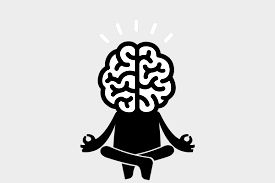The Power of Mindfulness: How Habits Shape the Brain Through Neuroplasticity
- elissajennings
- 1 day ago
- 4 min read

Introduction: Why Mindfulness Matters for Brain Health
Modern neuroscience confirms what ancient wisdom has long suggested: mindfulness has a profound impact on the human brain. Regular mindfulness practice not only improves focus and emotional regulation but also reshapes the structure and function of the brain through a phenomenon known as neuroplasticity.
Mindfulness and the brain are now a key focus in both cognitive science and high-performance training. Whether you're recovering from burnout, managing stress, or optimising mental performance, daily mindfulness habits can enhance brain health, memory, and resilience.
In this article, we’ll explore how mindfulness changes the brain, the role of habits in reinforcing these changes, and how you can use this understanding to support cognitive clarity and long-term mental wellbeing.
1. What Is Neuroplasticity and Why It Matters
Neuroplasticity refers to the brain's ability to rewire itself in response to experiences, learning, and behaviour. It’s how your brain adapts to new challenges, skills, and even recovery from injury or trauma.
This adaptability means your brain is constantly evolving. Whether it's building new connections or pruning away unused pathways, your habits directly influence how your brain is shaped.
Key benefits of neuroplasticity include:
Improved memory and learning
Enhanced emotional regulation
Faster recovery from cognitive decline
Increased resilience to stress
Mindfulness practice plays a powerful role here. By deliberately focusing your attention and cultivating present-moment awareness, you're literally training your brain to strengthen attention networks and deactivate regions involved in rumination and stress.
A study from Harvard University found that just 8 weeks of mindfulness meditation led to increased grey matter density in the hippocampus, the brain region associated with memory and learning (Holzel et al., 2011).
2. How Mindfulness Rewires the Brain
When practised consistently, mindfulness has been shown to produce lasting structural changes in the brain. Key areas affected include:
Prefrontal cortex: involved in decision-making and attention
Amygdala: regulates emotional responses and stress
Hippocampus: central to memory and learning
By repeatedly activating attention and calming circuits in the brain, mindfulness reinforces pathways that support clarity, calm, and cognitive control.
In one of the most referenced studies on mindfulness and the brain, participants who meditated daily showed a decrease in the size of the amygdala after 8 weeks—correlating with reduced stress responses (Lazar et al., 2005).
The long-term effects of mindfulness include:
Enhanced focus and working memory
Lower anxiety levels
Better sleep quality
Reduced symptoms of depression and fatigue
If you’re experiencing brain fog or chronic fatigue, integrating mindfulness into your daily routine could be a low-barrier, high-impact intervention. (See our blog on brain fog causes and solutions).
3. Habit Formation: The Engine Behind Brain Change
Neuroplasticity is driven by repetition. Your brain doesn't change from one-off decisions, but from consistent actions over time. This is why habit formation is so important for mental health and performance.
When mindfulness becomes a daily habit—even for just 5 to 10 minutes—you begin to strengthen neural circuits that support:
Concentration
Emotional regulation
Response inhibition (the ability to pause before reacting)
Self-awareness
The basal ganglia, a part of the brain associated with automatic behaviours, plays a role in storing these habits. Over time, mindfulness can shift from a conscious effort to an automatic stabiliser of mental performance.
Neuroscience research from MIT found that chunking habits into repeatable routines forms stable brain patterns in the basal ganglia (Graybiel, 2008).
Pairing mindfulness with other brain-supportive habits—like quality sleep, nutrient-dense meals, or nootropic supplementation—can lead to exponential improvements in cognitive function. (Explore our guide on natural nootropics for mental clarity).
4. Practical Mindfulness Habits That Support Brain Health
Mindfulness doesn’t need to be complicated. You don’t have to sit cross-legged for an hour a day to reap the benefits. These simple, science-backed habits can help reinforce healthy brain function:
1. Box Breathing (4-4-4-4 technique)
A slow and steady breathing pattern that reduces stress and centres attention.
2. Mindful Walking
Use walking as an anchor to the present—focus on footfalls, breathing, and surroundings.
3. Gratitude Journaling
Writing down three things you’re grateful for each morning can shift focus away from stress and activate the prefrontal cortex.
4. Digital Detox Moments
Take a break from screens for 10–15 minutes during the day. Use this time to sit quietly or practice breath awareness.
5. Body Scan Meditation
Bring attention to physical sensations in your body, moving from head to toe. This builds interoceptive awareness and reduces anxiety.
These practices are especially useful for athletes, professionals, and anyone experiencing high levels of mental fatigue. (You may also be interested in our piece on combatting fatigue with brain nutrition).
5. The Future of Brain Health: Combining Mindfulness with Science
Mindfulness is a proven tool, but it's even more powerful when paired with scientific innovation. At the forefront of this are AI-guided brain apps, cognitive diagnostics, and natural nootropic supplements that personalise brain health strategies.
At CONKA, we’ve developed an ecosystem that blends:
Daily mindfulness routines
Clinically validated cognitive tests
Personalised nootropic protocols
Community challenges and rewards
This integrated approach accelerates habit formation and supports neuroplasticity, giving you the tools to actively enhance your brain’s performance over time.
In high-performance contexts—whether in elite sport, corporate leadership, or creative industries—mindfulness is no longer just a wellness add-on. It’s becoming a central part of cognitive training.
Conclusion: Start Small, Change Everything
The science is clear: small, consistent mindfulness habits can dramatically rewire the brain through neuroplasticity. Whether your goal is improved focus, better emotional regulation, or reduced fatigue, mindfulness and the brain are intimately connected.
By understanding how neuroplasticity works and using daily habits to harness it, you’re taking control of your cognitive future, one mindful breath at a time.
Curious about how nootropics can boost focus, recovery and brain performance?
Try CONKA today, the daily brain health shot which was developed by neuroscientists, approved by pro athletes and built for anyone who wants to feel and perform at their best.




コメント